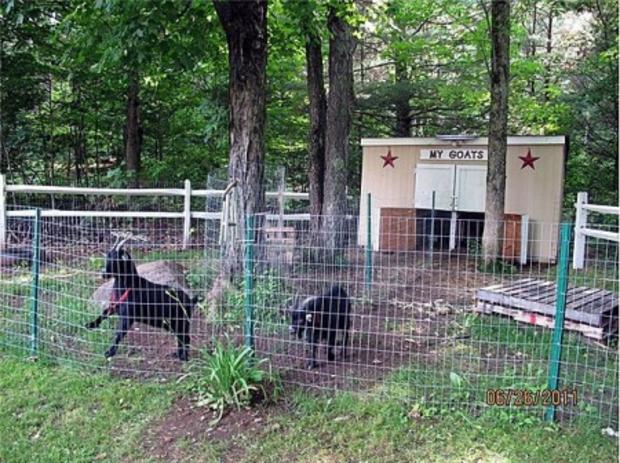Urban farming on the rise nationwide
The economy is still wobbly and unemployment figures remain high, but that doesn't mean prices of necessities, like food, have come down.
While jobs, home equity and retirement account values continue their downward spiral, the costs of some foods and fuel are climbing. My colleague Dan Burrows at CBS wrote a piece last year about rising food prices. He revealed the average household grocery bill will skyrocket four to five percent once the numbers for 2011 are complete, as compared to 2010.
Many families are trying to combat high prices at the cash register by focusing on food sustainability. Individuals and communities feeding themselves in an environmentally responsible way is gaining popularity, and farming is no longer confined to the country.
In decades past, Americans relied on rural farms to meet the food supply needs of the rest of the nation. But the capability to grow fresh fruits and vegetables, even of the super-trendy organic variety, is coming to the city. If you don't believe me, the U.S. Department of Agriculture says "around 15 percent of the world's food is now grown in urban areas."
Real estate trends: College town real estate
Fewer homeowners underwater, but number is still high
Picking up on this movement, the folks at Zillow recently mined their real estate listings to locate city homes for sale that may feel more like Green Acres.
Take for example one Austin, Texas, home listed at $391,500: That price will get you a two bedroom, one bathroom, 1,196 square foot home in the city limits. In addition to modern luxuries, your down payment also gets you a chicken coop and vegetable garden.
And would you ever expect to find goats living in the suburbs of New York City? With the growth of the urban farm trend anything is possible.
This four bedroom, two bathroom home occupies 1,748 square feet and recently underwent a price cut. All of that living space (and the goats) could be yours for just $149,900.
A property is an investment and as mortgages, taxes, insurance and other costs strain the pocketbook, a growing number of homeowners are asking more from their property - such as the ability to raise livestock and fresh food. While this is certainly an inventive way to maximize living space and make a dent in the grocery bill, you have to remember that laws and codes vary widely from city to city. This past summer, according to a report from ABC News, a Michigan woman faced criminal charges for growing a vegetable garden in her front yard that violated municipal ordinances.
The best way to try your hand at urban gardening - without running afoul of the law - is to educate yourself regarding local regulations and zoning laws.

